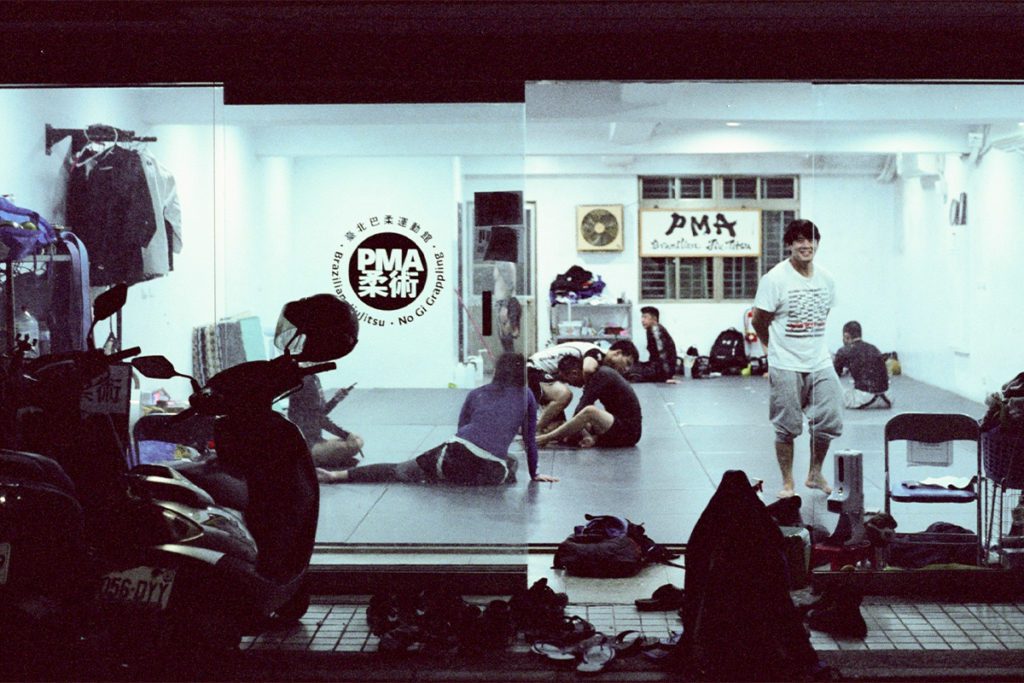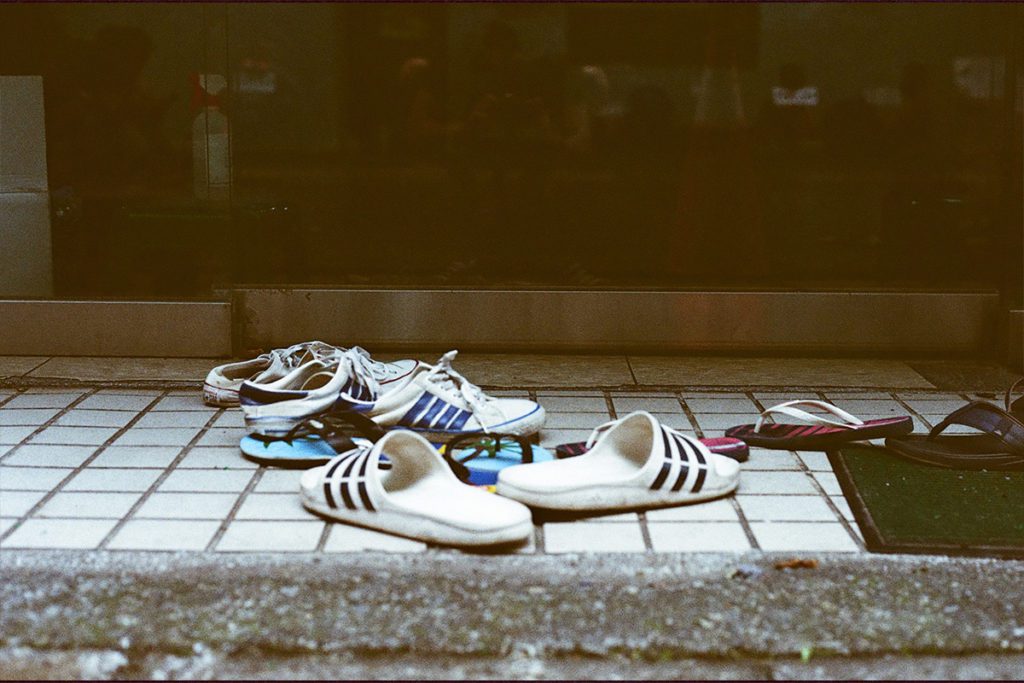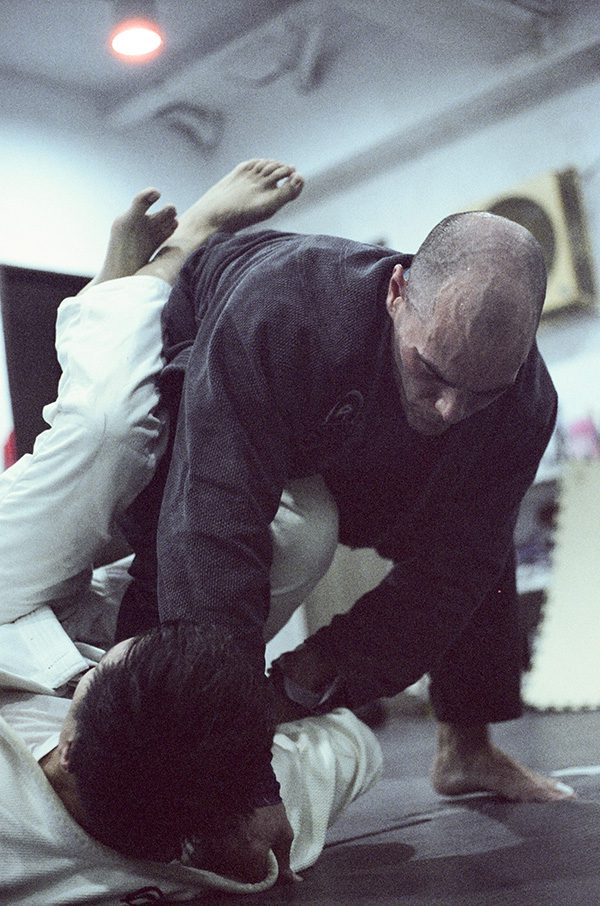“Mei yu, mei yu!—Plum rain, plum rain” is announced around a BJJ academy in Taipei on an oppressively humid Saturday afternoon to a mixture of annoyed sighs and tired glances. Several athletes, some shirtless, scramble to get their shoes inside before they are drenched in the approaching downpour. Others, look lazily out the door and return to their post-roll conversations.

“I don’t wear anything to Jiu-Jitsu that I’m afraid to get wet” is a common refrain.
They have plastic shoes or flip-flops—this is Taipei, after all. It’s always raining here.
The season for Plum Rain
Spanning approximately 50 days in late spring, plum rain is a season unique to East Asia. Named after a Chinese folk belief, it is said that the yellowing of plums south of the Yangtze River is caused by evaporation, and this results in rain.
The tradition can be compared to the adage “April showers bring May flowers”. But then…people in American dojos don’t run around shouting “April Showers, April Showers!” when torrential rain strikes after an otherwise lovely training session.
“Well, looks like we’ll be hanging out here for a while” laments a blue belt expatriate.
“At least I hadn’t showered and headed to the metro…Igor must be kicking himself.”
Outside the storefront academy’s floor-to-ceiling windows it looks like God is trying to wash away the neighborhood’s sins. This dojo is named after a punk song and is located near one of Taipei’s two red-light districts. Outside the gym, women with bad tattoos in short black skirts huddle under umbrellas smoking cigarettes.
They aren’t hookers, but they definitely work for their money.
It’s only several minutes into the downpour and there is already several centimeters of water in the alley. Ten minutes before, the skies were blue, sun was pouring in through the windows, and a diverse group of athletes were rolling. A mixture of hip-hop, dad-rock, and early 2000’s scream-o masked the sound of heavy breathing and strain.
Now, the drum of rain on concrete and rain on sheet metal drowns out all but the muffled voices of a few female colored belts.
“Why does it always rain when it’s time to go home! How annoying!” one says in Chinese.
The bathroom door swings open, and with a burst of steam emerges a Taiwanese-American man in his late 30s. “F**k. I left my laundry on the balcony, I’ll have to rewash it when I get home.”
The other athletes are unfazed. They’ve had this conversation before.
The Art of Drying
Most Taiwanese houses don’t have dryers, making the washing of Jiu-Jitsu gear particularly arduous in the near-constant humidity. As a rule, local athletes have several GIs and a pile of rash-guards. Even the most diligent neat-freak will find carefully hung kimonos damp days after they’ve been put out.
Some athletes run a length of dried bamboo through the sleeves and leave it on a covered section of rooftop. Others show up to practice with wet kimonos, smelling of either mildew or laundry detergent.
“Bro, put your wet GIs in a wardrobe with a dehumidifier. It will be dry in hours” quips a purple belt. “That’s what I do, bro! Check it out, my sh*t is always dry”.
He holds up a kimono that is beyond ratty, resembling something akin to a pirate costume.
What he fails to mention is dehumidifiers—an appliance as ubiquitous in Taiwan as deck-top BBQ grills are to Midwestern America—can start fires when run for too long or in confined spaces. In sum, an unsupervised dehumidifier enclosed in a closet with dry fabric is a fire hazard. But like so many risks, it is one some Jiu Jiteros take for the sport.
A Slippery Journey Home
About twenty minutes pass, and the rain shows no sign of abating. The instructor announces that his students can hang out for a bit longer, but at some point today, he’ll need to eat something. His athletes begin scrounging around for umbrellas. Without one, they will be forced to dart from overhang to overhang on their way to the subway station. A precarious task on sidewalks seemingly designed to be slippery.

Those who drove to practice put on rain coats that drop to their knees, and rain pants that climb above their belly buttons. These pants are tucked into locally made wellingtons that cut off just below the knees and come in sizes that fit feather to middle-weights only. The whole ensemble is capped with a helmet.
The roads, and their slick painted-on guidelines, become dangerous when it rains. Scooter accidents in Taipei account for about as many injured athletes as white belts learning sloppy heel hooks.
Rain or Shine – We Train
The constant rain in Taipei affects people’s day-to-day life. In the winters it’s cold and wet, and in the summers it’s hot and wet. Apart from a painfully brief two months in autumn, it’s a fact of daily life.

The rain doesn’t seem to impact attendance rates at the local BJJ gyms, however. In spite of the cold, the heat, the earthquakes, and the plum rains— athletes always show up. Indeed, the biblical weather rarely stops Taiwanese and expatriate athletes from putting in the work.
Alongside cauliflower ear, injured fingers, and endless laundry, the miserable weather is just something else they deal with. Taiwan’s jiujiteros get ugly ears, tape their fingers, dehumidify their equipment, and pack umbrellas with their GIs.
Bryn is an American Purple Belt dividing his time between rainy Taipei, Taiwan and sunny Hochiminh City, Vietnam. He holds a master’s in Asian studies and is fluent in Chinese. He enjoys photography, writing, and Brazilian Jiu Jitsu. Check out more of his photography on IG @High_Mountain_Green
